Apple M1 Ultra
Rated: 8/10
Apple M2 Max
Rated: 7/10
Pros And Cons
| CPU | Pros | Cons |
|---|---|---|
| Apple M1 Ultra | ✅ Faster CPU Speed ✅ More CPU Thread Count | ❌ Turbo Boost Inapplicable ❌ Lower Benchmark Results |
| Apple M2 Max | ✅ Lower TDP ✅ Bigger L1 Cache | ❌ Smaller L2 Cache ❌ More Memory Bandwidth |
- Our initial impression is that the Apple M1 Ultra Vs Apple M2 Max provides different performance and advantages depending on the core usage.
- The M2 Max excels in our tested single-core tasks by 8.9% on average, showcasing higher scores in a multitude of benchmarks.
- The M1 Ultra takes the lead in multi-core scenarios by 47.9% on average, demonstrating superior performance in many CPU benchmark software.
- We suggest that you consider workload, multitasking, and budget to decide if the M1 Ultra or M2 Max better suits your preferences and performance needs.
Comparison Table
| Key Specifications | M2 Max | M1 Ultra |
|---|---|---|
| Release Date | January 17, 2023 | March 8, 2022 |
| Integrated GPU | Apple M2 Max GPU (38-core) | Apple M1 Ultra GPU (64-core) |
| Total Cores | 12 | 20 |
| Total Threads | 12 | 20 |
| L1 Cache | 192K (per core) | 192K (per core) |
| L2 Cache | 32MB (shared) | 48MB (shared) |
| Transistors | 67 billion | 114 billion |
| GPU Base Clock | 450 MHz | 450 MHz |
| GPU Boost Clock | 1398 MHz | 1296 MHz |
| Cuda Cores | 4864 | 8192 |
| Display Capabilities | 7680x4320 - 60 Hz | 6016x3384 - 60 Hz |
| Max. Memory Bandwidth | 409.6 GB/s | 800 GB/s |
Apple M1 Ultra Vs Apple M2 Max – Architectural Differences
- Process Node: Demonstrating their commitment to cutting-edge technology, both the M2 Max and M1 Ultra showcase an advanced 5nm fabrication process as the foundation for their exceptional performance.
- Clock Speed: Showcasing their impressive speed capabilities, the M2 Max takes the lead with a 2.4 GHz base clock and an impressive boost clock of up to 3.5 GHz, while the M1 Ultra offers strong performance with a 2.1 GHz base clock and a boost clock of up to 3.2 GHz.
- Memory Support Variation: Displaying its memory handling prowess, the M1 Ultra supports up to 128GB LPDDR5-6400, surpassing the M2 Max’s 96GB LPDDR5-6400 capability.
- TDP: Striving for optimal thermal efficiency, the M2 Max shines with a commendably lower TDP of 30W, allowing for cooler operation and extended battery life. In contrast, the M1 Ultra demands a higher 60W TDP.
In this highly anticipated face-off, we delve into the realm of cutting-edge chip technology as we compare the Apple M1 Ultra Vs Apple M2 Max. With a keen focus on their specifications and technological advancements, we aim to uncover these two titans’ true potential and prowess.
Performance Benchmarks
Let’s delve into the performance benchmarks to gain insights into the capabilities of the Apple M1 Ultra Vs Apple M2 Max. By examining their performance in various benchmarks, we can evaluate how these chips fare in terms of processing power, speed, and overall performance.
Let’s explore the numbers and uncover the true potential of these impressive processors.
Cinebench R23 (Single-Core)
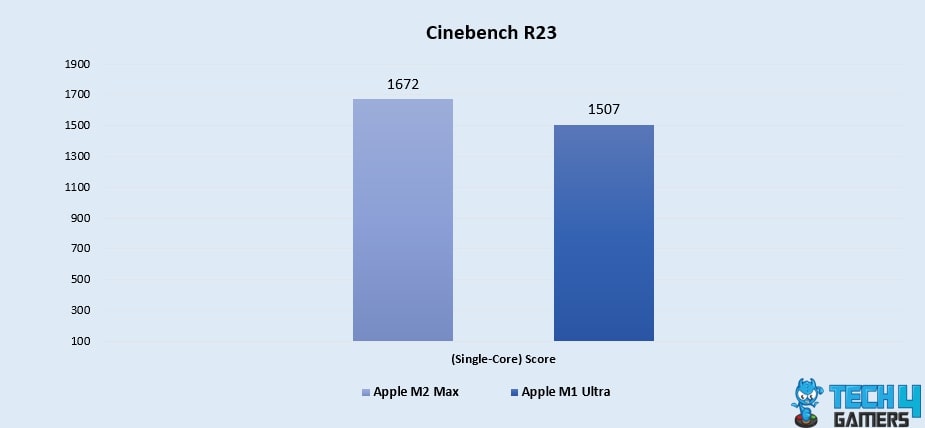
- In our Cinebench R23 Single-Core benchmark, the M2 Max showcased a remarkable 11% performance boost over the M1 Ultra, scoring 1672 compared to 1507.
Cinebench R23 (Multi-Core)
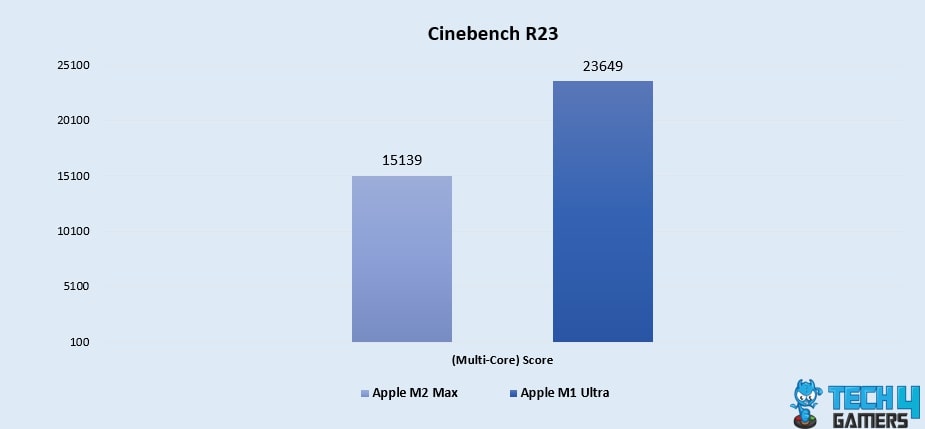
- Moving to the Cinebench R23 Multi-Core benchmark, we observed that the M1 Ultra surged ahead with an impressive 56% performance advantage, scoring 23649, while the M2 Max scored 15139.
Passmark CPU (Single-Core)
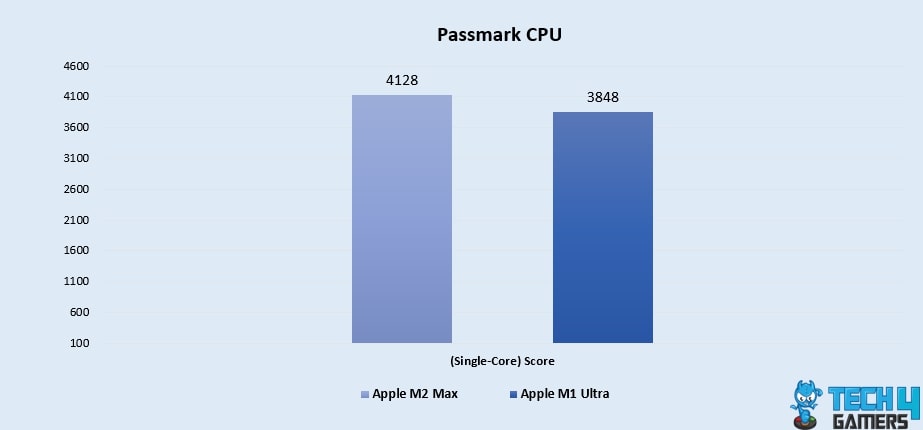
- The Passmark CPU Single-Core test revealed a 7% performance gain for the M2 Max, achieving a score of 4128 compared to the M1 Ultra’s score of 3848.
Passmark CPU (Multi-Core)
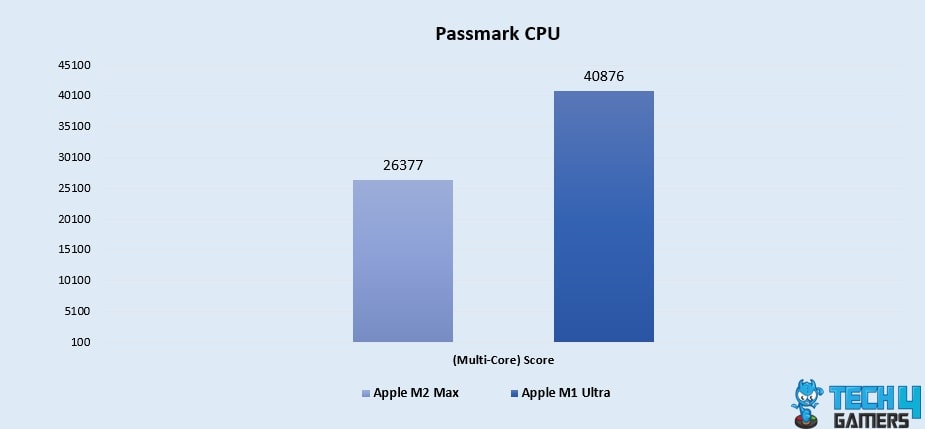
- In our analysis of the Passmark CPU Multi-Core benchmark, we found that the M1 Ultra dominated with a significant 55% performance lead, scoring 40876 compared to the M2 Max’s score of 26377.
Geekbench 5 (Single-Core)
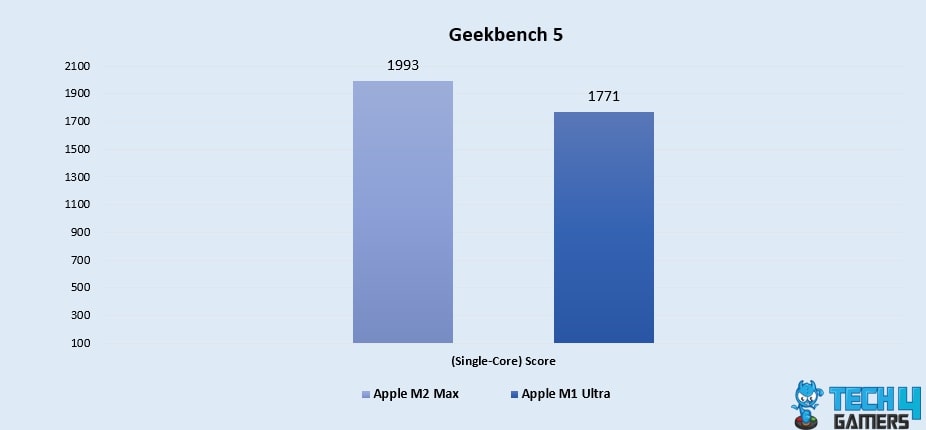
- Geekbench 5 Single-Core benchmark highlighted a 13% performance increase for the M2 Max, scoring 1993 compared to the M1 Ultra’s score of 1771.
Geekbench 5 (Multi-Core)
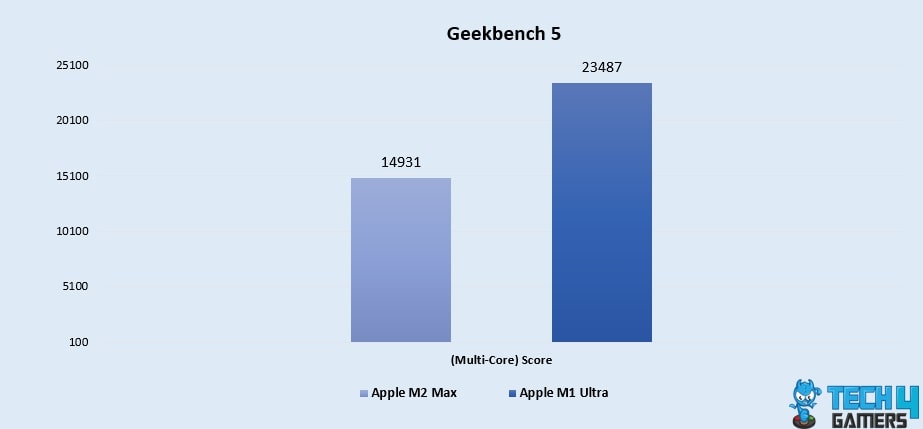
- In our Geekbench 5 Multi-Core benchmark test, we observed the M1 Ultra once again demonstrating its superiority, achieving a 57% performance advantage with a score of 23487, while the M2 Max scored 14931.
Apple M1 Ultra Vs Apple M2 Max – Which One Is Right For You?
Apple M2 Max: In our testing, we noticed that for single-core tasks, the M2 Max exhibits a clear advantage, surpassing the M1 Ultra with higher scores in both Cinebench R23 and Geekbench 5 benchmarks.
Apple M1 Ultra: As for the M1 Ultra, we observed in multicore benchmarks that the M1 Ultra taking the lead, demonstrating superior performance in both Cinebench R23 and Passmark CPU Multi-Core benchmarks.
When considering factors like specific workload requirements, multitasking needs, and budget considerations, choosing between the M1 Ultra and M2 Max will depend on individual preferences and the desired balance between single-core and multi-core performance.
More From Apple M2 Max:
Thank you! Please share your positive feedback. 🔋
How could we improve this post? Please Help us. 😔
[Comparisons Expert]
Shehryar Khan, a seasoned PC hardware expert, brings over three years of extensive experience and a deep passion for the world of technology. With a love for building PCs and a genuine enthusiasm for exploring the latest advancements in components, his expertise shines through his work and dedication towards this field. Currently, Shehryar is rocking a custom loop setup for his built.
Get In Touch: shehryar@tech4gamers.com


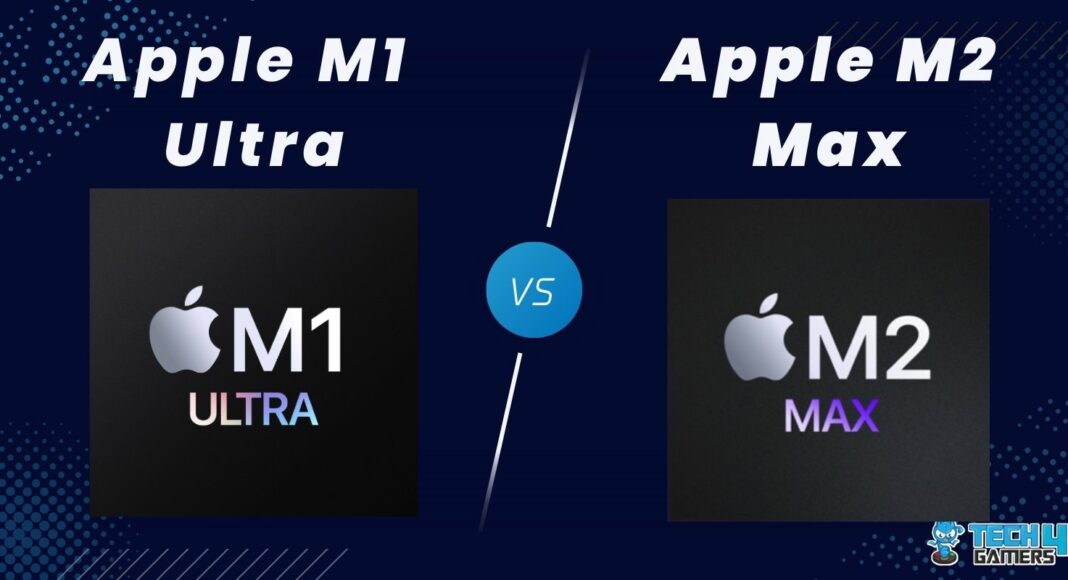

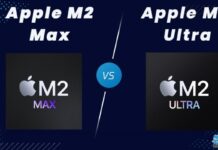
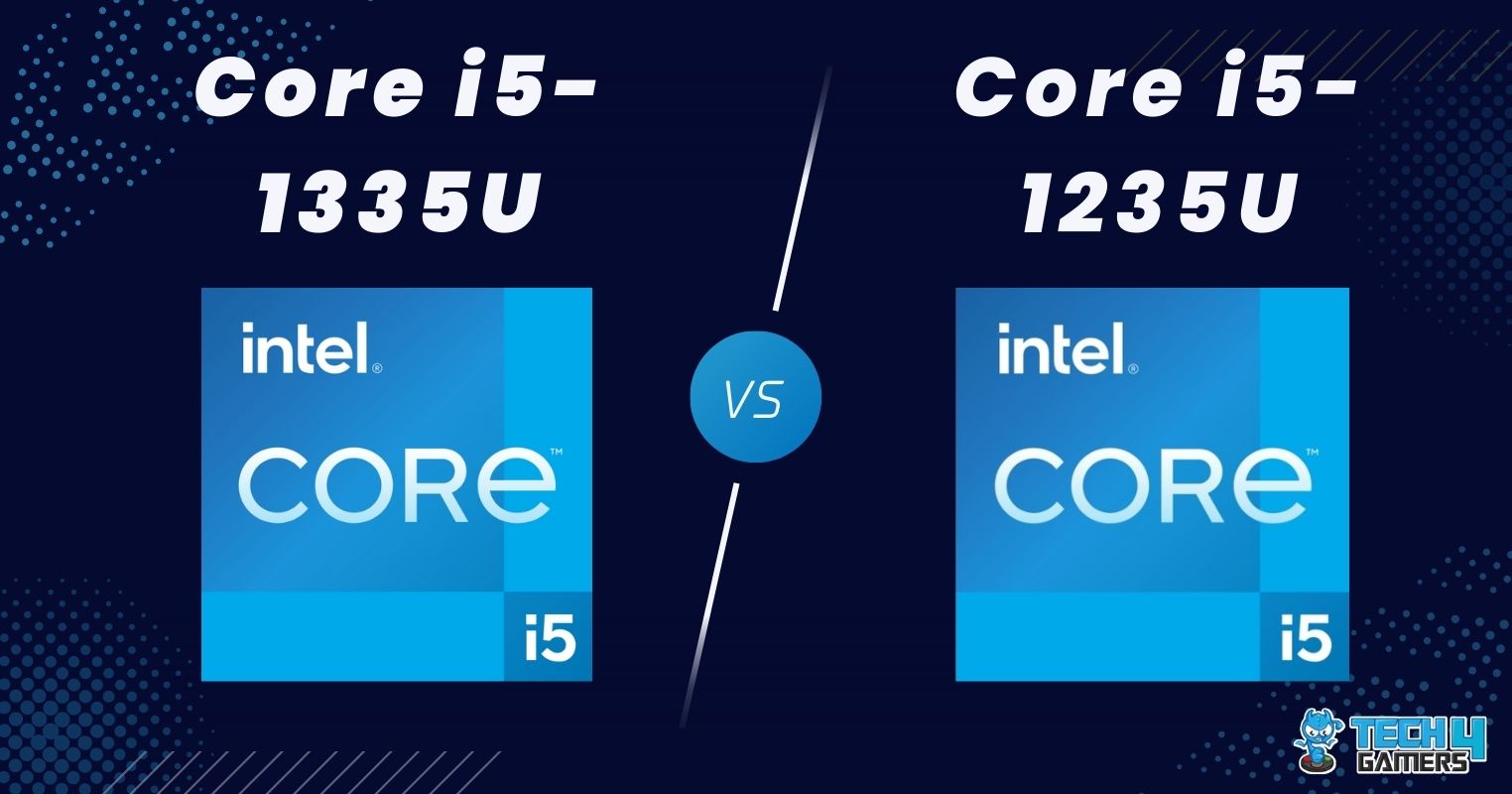
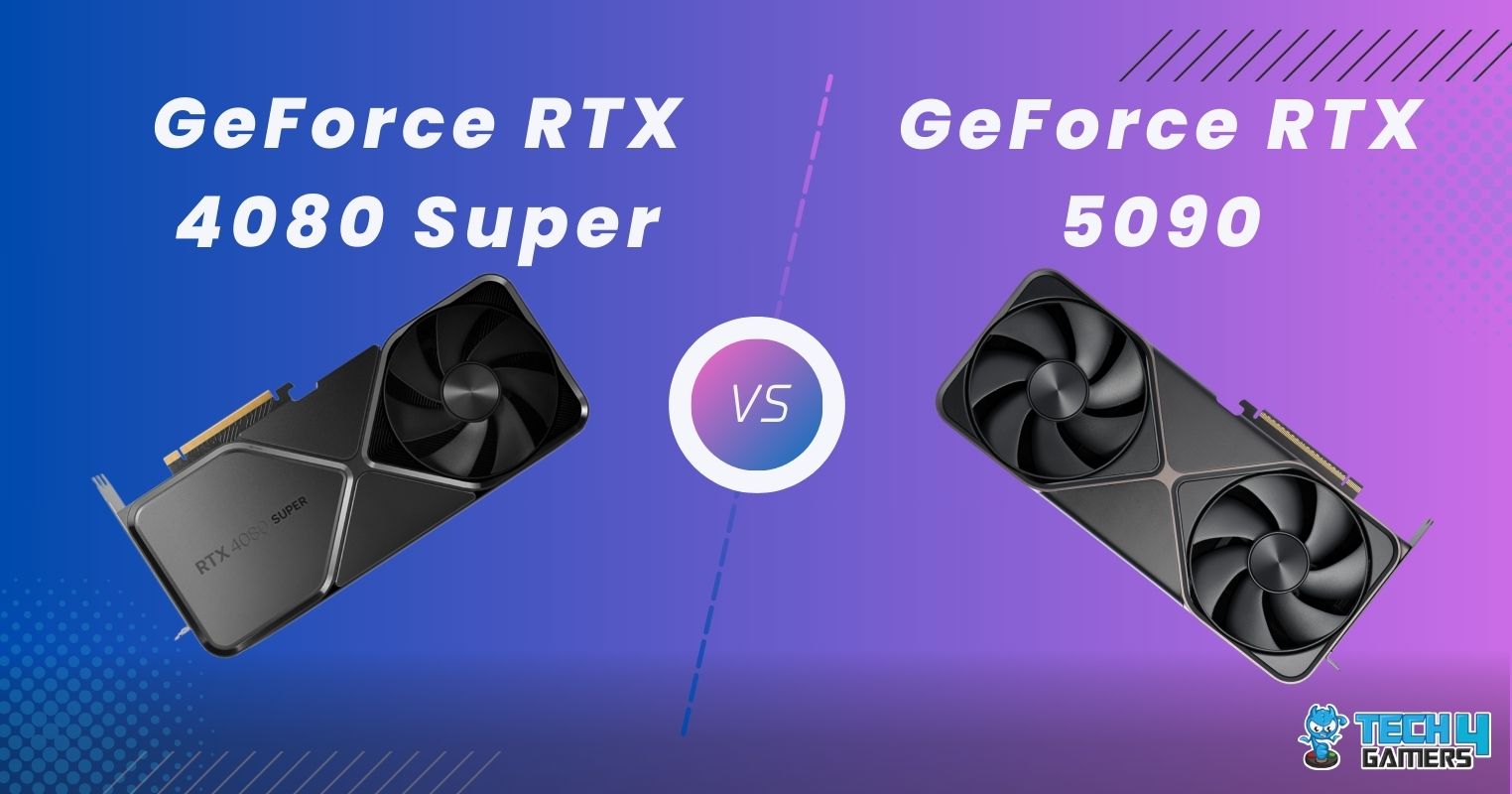
![Core i3 13100 Vs Ryzen 5 5600 [8 Games Tested]](https://tech4gamers.com/wp-content/uploads/2023/07/CPU-Comparison-Template-NEW-218x150.jpg)